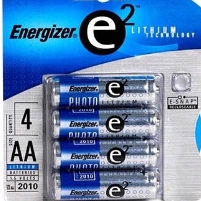Next Time You Look at a Lithium Battery, Think about Bolivia
Tuesday, May 19, 2009

As technology for cell phones and electric vehicles develops rapidly, the world is looking to a new source of energy: the vast salt flats of Bolivia. The poorest nation in South America is home to the world’s largest reserves of lithium, a metal that is highly valued by multinational companies for its potential use in batteries. Lithium already fuels many cell phone and camera lilon (lithium-ion) batteries. Lilons have a superior ability to hold and discharge electricity and are more durable and compact, which is why many see them as the key to the future development and proliferation of more sustainable electric cars. Since 2004, lithium production in Bolivia has increased dramatically from 16 tons to 25 tons annually.
The Bolivian government is aware of the potential of its lithium reserves, and the leftist government of Evo Morales has kept tight control over them even as multinationals and other foreign investors come knocking. Many Bolivians see this resource as an invaluable way to drive growth and development. With the groundbreaking for the first refinery plant in May 2008, to be opened in 2010, it seems likely that the nascent industry may soon be nationalized. Morales has stated that he does not want to simply export the lithium to be used in products manufactured abroad, but hopes instead to develop industries to build the complete products in Bolivia.
Still, the knowledge of just how valuable this resource is is relatively recent, and there are many potential implications that have yet to be explored. One is how the Bolivian government should go about capitalizing on its reserves, and whether it will be able to do this effectively by directing state revenue to the impoverished areas where it is needed most.
Another concern is the environmental impact that this could have. The salt flats where most of the lithium is contained have traditionally been an important resource for local indigenous populations who harvest and sell the salt. Also, much additional infrastructure would be needed to support large-scale extraction, but this brings with it concerns about pollution and ecological preservation. Wild flamingoes, for example, use the delta as their annual mating ground. Still, the economic possibilities are enticing for many, and environmentalists are caught between advocating for the preservation of the region and going against populist economic rhetoric.
-Lucy Benz-Rogers
Salt of the Earth (by April Howard, In These Times)
Bolivia: Saudi Arabia of Lithium (Mother Nature Network)
- Top Stories
- Unusual News
- Where is the Money Going?
- Controversies
- U.S. and the World
- Appointments and Resignations
- Latest News
- Trump to Stop Deportations If…
- Trump Denounces World Series
- What If China Invaded the United States?
- Donald Trump Has a Mental Health Problem and It Has a Name
- Trump Goes on Renaming Frenzy






Comments